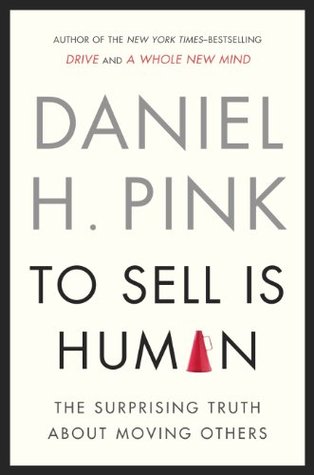More on this book
Community
Kindle Notes & Highlights
Read between
February 15 - February 22, 2018
Rethink sales commissions.
But what if we’re wrong? What if we offer commissions largely because, well, we’ve always offered commissions? What if the practice has so cemented into orthodoxy that it’s ceased being an actual decision? And what if it actually stands in the way of the ability to serve?
“Salespeople are no different from engineers, architects, or accountants. Really good salespeople want to solve problems and serve customers. They want to be part of something larger than themselves.”
Recalibrate your notion of who’s doing whom a favor.
“when one party in the transaction thinks he’s doing the other guy a favor . . . but the other guy doesn’t act that way in return.” The remedy for this is simple and it’s one we can use in our efforts to move others: “Why not always act as if the other guy is doing the favor?” This approach connects to the quality of attunement—in particular, the finding that lowering your status can enhance your powers of perspective-taking. And it demonstrates that as with servant leadership, the wisest and most ethical way to move others is to proceed with humility and gratitude.
Try “emotionally intelligent signage.”
One way to do better is with what I call “emotionally intelligent signage.” Most signs typically have two functions: They provide information to help people find their way or they announce rules. But emotionally intelligent signage goes deeper. It achieves those same ends by enlisting the principles of “make it personal” and “make it purposeful.” It tries to move others by expressing empathy with the person viewing the sign (that’s the personal part) or by triggering empathy in that person so she’ll understand the rationale behind the posted rule (that’s the purposeful part).
By reminding people of the reason for the rule and trying to trigger empathy on the part of those dog-walkers—making it purposeful—the sign-makers increased the likelihood that people would behave as the sign directed. Now your assignment: Take one of the signs you now use or see in your workplace or community and recast it so it’s more emotionally intelligent. By making it personal, or making it purposeful, you’ll make it better.
Treat everybody as you would your grandmother.
In every encounter, imagine that the person you’re dealing with is your grandmother. This is the ultimate way to make it personal. How would you behave if the person walking into your car lot wasn’t a stranger but instead was Grandma? What changes would you make if the employee you’re about to ask to take on an unpleasant assignment wasn’t a seemingly disposable new hire but was the woman who gave birth to one of your parents? How honest and ethical would you be if the person you’re corresponding with via e-mail wasn’t a onetime collaborator but was the nice lady who still sends you birthday
...more
Always ask—and answer—these two questions.
Finally, at every opportunity you have to move someone—from traditional sales, like convincing a prospect to buy a new computer system, to non-sales selling, like persuading your daughter to do her homework—be sure you can answer the two questions at the core of genuine service. If the person you’re selling to agrees to buy, will his or her life improve? When your interaction is over, will the world be a bette...
This highlight has been truncated due to consecutive passage length restrictions.


